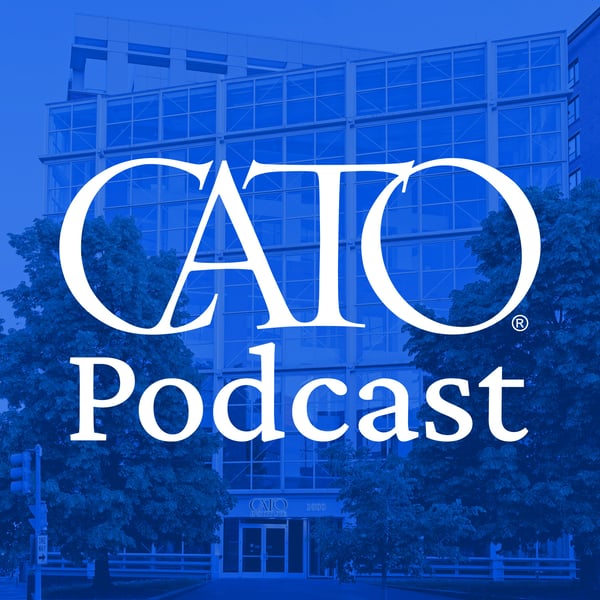Best of Cato Daily Podcast: A Few From The Dirty Dozen
Cato Podcast
Cato Institute
4.6 • 949 Ratings
🗓️ 13 May 2025
⏱️ 7 minutes
🧾️ Download transcript
Summary
Hosted on Acast. See acast.com/privacy for more information.
Transcript
Click on a timestamp to play from that location
| 0:00.0 | This is longtime Cato Daily podcast host, Caleb Brown. I've hosted the Cater Daily podcast for nearly |
| 0:04.9 | 18 years, but no more. But I wanted to leave loyal listeners with some favorite episodes that I hope |
| 0:10.7 | ring true and relevant to our current moment. This is one of them. Thank you for listening. |
| 0:18.1 | This is the Cato Daily podcast for Monday, May 12th, 2008. I'm Caleb Brown. The Constitution was meant to protect liberty and shackle government. So how did we get to a world in which provisions of the Constitution are believed by many to give various branches of government unchecked authority? William H. Miller is president of the Institute for Justice |
| 0:38.5 | and co-author with Cato's Bob Levy of the Dirty Dozen, how 12 Supreme Court cases radically expanded |
| 0:44.9 | government and eroded freedom. We spoke about a few of those cases following a Cato book |
| 0:49.8 | forum last week. Were there any cases that almost made it into this list? I noticed you have Roe v. Wade |
| 0:56.9 | and Bush v. Gore at the end of the book. Actually, when we looked at the 12 cases that made the top |
| 1:03.0 | of the list, those were so glaringly obvious that we really felt very comfortable and confident |
| 1:08.4 | that it was worth doing those and no others. That's not to say there aren't a lot of bad Supreme Court cases. Of course there are. |
| 1:14.2 | In the regulating interstate commerce section, you talk about two cases, Wicked v. Filbert and |
| 1:19.7 | Gonzalez v. Rage. And I noted that Bob Levy said that the court used the exact same reasoning |
| 1:24.9 | in deciding both of those cases. Does that make it less likely, |
| 1:30.9 | you think, for this type of thinking to be overturned? There's no question that the court's |
| 1:36.6 | decision in Wickard, and even more recently and tragically enraish, radically expanded the reach |
| 1:42.2 | of federal authority and made it possible for the federal government |
| 1:44.8 | to get involved in the most local of activities because what they've recognized is that |
| 1:49.5 | it doesn't even have to be commerce, it doesn't have to be interstate. It can be completely within |
| 1:54.6 | a state. It can be completely something that you, in the case of medical marijuana, grow and |
| 1:59.5 | use for your own purposes, do not |
| 2:01.6 | engage in any commercial transactions. And yet that is nevertheless something that, because it may |
| 2:07.1 | have in the aggregate a substantial effect on something that they define as commerce, in this |
... |
Please login to see the full transcript.
Disclaimer: The podcast and artwork embedded on this page are from Cato Institute, and are the property of its owner and not affiliated with or endorsed by Tapesearch.
Generated transcripts are the property of Cato Institute and are distributed freely under the Fair Use doctrine. Transcripts generated by Tapesearch are not guaranteed to be accurate.
Copyright © Tapesearch 2025.

